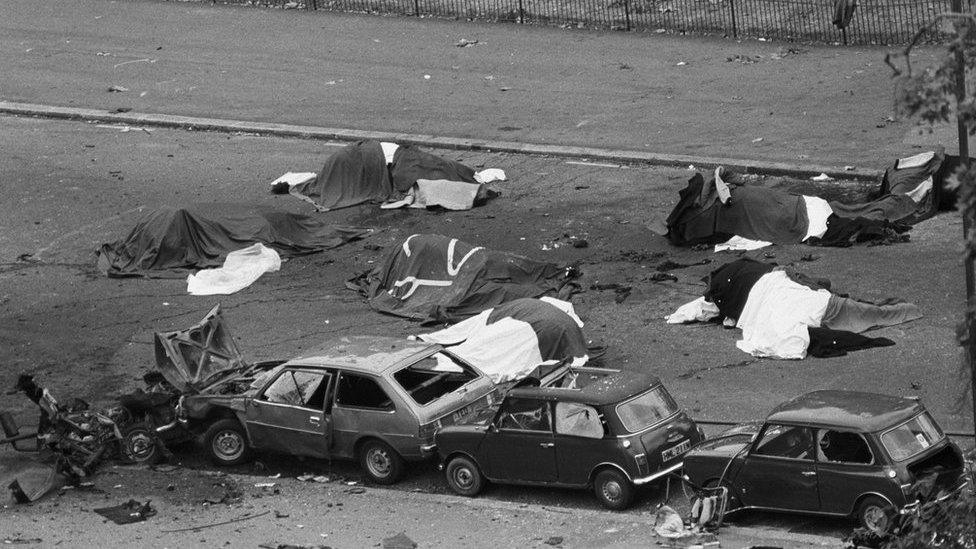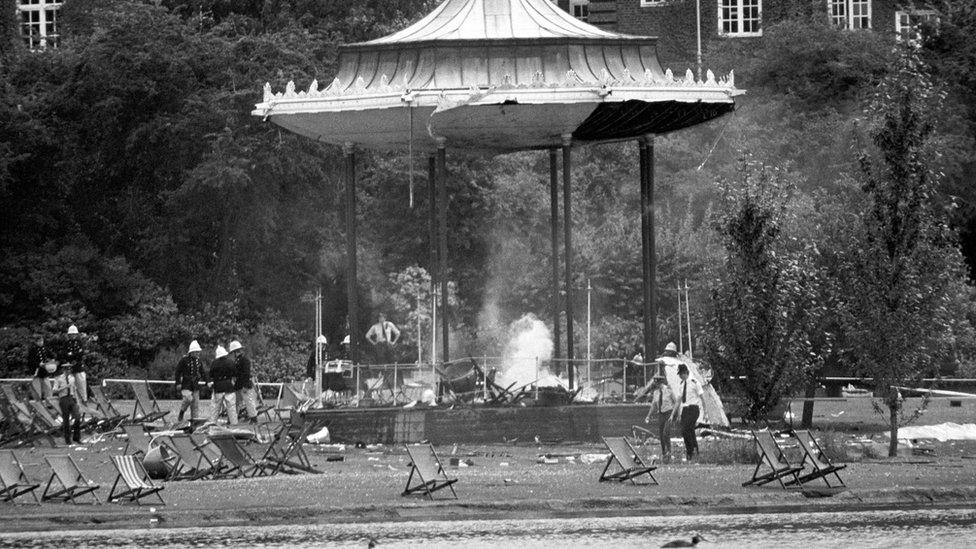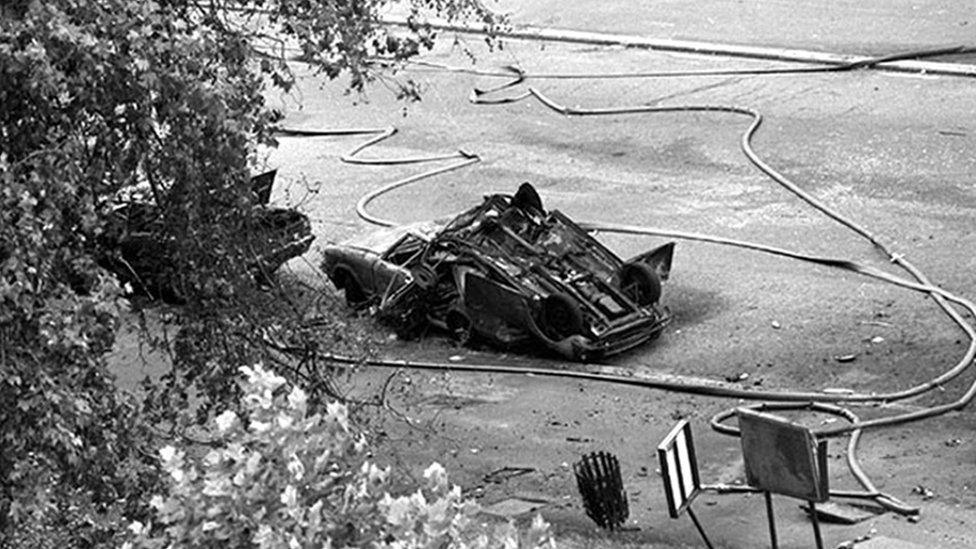Families of Hyde Park and Regent's Park bombings still seek justice
- Published

A remembrance ceremony will be held on Wednesday
A man whose brother was killed in the Hyde Park bombing 40 years ago says proposed legislation "seems to be in favour of the perpetrators".
Mark Tipper's younger brother, Simon, was one of 11 military personnel killed during IRA bombings at Hyde Park and Regent's Park on 20 July 1982.
A proposed Bill would limit criminal investigations into events during the troubles.
The Northern Ireland Office said the bill "help society to look forward".
The Northern Ireland Troubles Legacy and Reconciliation Bill, which has passed through the House of Commons, would limit "criminal investigations, legal proceedings, inquests and police complaints".
It would also extend the prisoner release scheme in the Northern Ireland (Sentences) Act 1998.

Seven members of the Royal Green Jackets were killed while performing on the bandstand
A High Court judge ruled in 2019 that John Downey was an "active participant" in the Hyde Park attack, in which a car bomb was used. In 1987, another man was found guilty over the bombing but his conviction was later quashed.
Nobody has ever been charged over the Regent's Park killings.
A remembrance ceremony is set to be held at Hyde Park on Wednesday.
'What happens to justice?'
Four men, Roy Bright, 36, Dennis Daly, 23, Simon Tipper, 19, and Jeffrey Young, 19 - all attached to the Household Cavalry - were killed by a car bomb while riding through Hyde Park to attend the Changing of the Guard. Seven horses also died.
Seven members of the Royal Green jackets were killed in the second attack, at Regent's Park.
Graham Barker, 36, John Heritage, 29, Robert Livingstone, 31, George Mesure, 19, John McKnight, 30, Keith John Powell, 24, and Laurence Smith, 19, were killed at the park's bandstand.
Mr Tipper recalled the tragedy, describing how the loss of his brother had "destroyed" his family.
He said: "On one of the news bulletins they said there had been a bombing down in London involving the Household Cavalry.
"It is strange but I just knew straight away it was my brother."

Simon Tipper was one of four men killed in the Hyde Park explosion
He added: "We were just a normal family and it destroyed us. My dad started to drink heavily, my mum was ruined. It causes a lot of anguish in families.
"I am still having counselling to this day."
Mr Tipper said he believed the newly proposed government legislation would not provide justice for the families of the victims.
"It seems to be in favour of the perpetrators. What happens to the victims? What happens to justice?"

A High Court judge ruled in 2019 that John Downey was an "active participant" in the first attack
Judith Jenkins Young was a 20-year-old mother of two when her husband Jeffrey was killed at Hyde Park.
"The impact of what happened has been terrible. Nothing will ever put it right," she said.
"My youngest girl Louise has no memory of her dad. The older girl Sarah-Jane has had a lot of issues because of what happened.
"People deserve justice, and their hurt will never heal until that happens."
A Northern Ireland Office spokesperson said the bill "will deliver a significantly different and improved approach to addressing the legacy of the Troubles in Northern Ireland that will provide more answers for families and help society to look forward.
"This legislation seeks to strike the right balance between a clear focus on information recovery and accountability, while ensuring that those who do not cooperate with the independent Commission will remain liable to prosecution should sufficient evidence exist, or come to light.